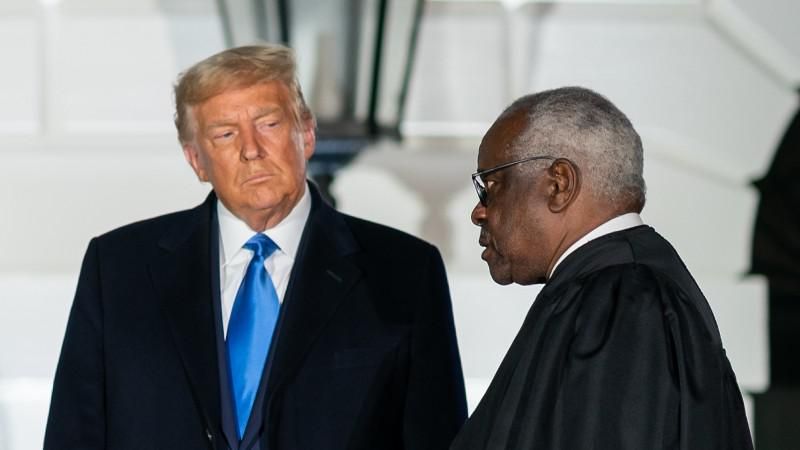The Supreme Court risks making a fool out of itself by ruling on the Donald Trump insurrectionist ballot challenge, a Yale historian said on Friday.
Renowned Yale Prof. Timothy Snyder, who previously said Putin wants Trump to win because the former president shows our "system is rotten," spoke out about the Supreme Court's involvement in the various state-based ballot cases.
"I am concerned that the Supreme Court, in ruling on Trump's eligibility for office, will make itself ridiculous," Snyder said. "This is where the comic potential emerges. This Court is unlikely ever to hear again a case of such simplicity, in which the text and context of the Constitution so obviously demand an unambiguous verdict."
He added:
"But three of our textualists and the intentionalists were appointed by Trump, and silliness seems to be the general expectation. The theory of Trump's lawyers, as one of them has actually said out loud, is that Supreme Court justices appointed by Trump belong to Trump."
ALSO READ: Highland Park fires rec director who’s suffering from mass shooting-induced PTSD
Snyder went on to say "it is widely proclaimed that the Court's decision should not be [based on] the Constitution, but instead the psychological state of Trump supporters."
"Such a pitchfork ruling, a judgement based not on law but on guesses about the moods of strangers, would be as far from intentionalism and textualism as the justices could get," the historian wrote. "It is just the sort of thing that intentionalists and textualists say that they never do. Their heroic pose is that they must do just what the Constitution says, regardless of the consequences."
"After a pitchfork ruling, the entire originalist pretense – that justices stand bravely apart from the moment and evaluate the text or context of the Constitution as they must – would dissolve," the historian said.
"The consequences of courting ridicule are, of course, very serious," the academic added. "Our form of government depends on a balance between the executive, the legislative, and the judicial branches."
"When such a government is toppled," he said on Friday, "it is usually by an executive who is able to dominate the other two branches. One way that an executive does so is by mocking the other two branches, portraying them as unnecessary and led by buffoons."
Leave a Comment
Related Post
